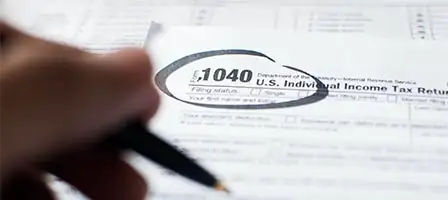Preparing for the Extension Deadline
If you operate an S corporation or a partnership, the September 15 business tax extension deadline is a critical date to keep in mind for the current tax year. This deadline marks the last day you can file your business tax return under an extension granted by the IRS, which pushes back the original filing due date for these entities.
While the extension postpones the time to submit your tax forms, any tax payments owed are generally still due before or by this deadline to avoid penalties and interest. Knowing how to prepare properly for this deadline ensures you stay compliant, avoid costly fees, and organize your tax filing requirements and related tax filing requirements well in advance. Whether your business follows a calendar year or fiscal year accounting period, understanding the nuances of this extension, particularly for S Corps and Partnerships, helps you manage your tax returns, forms, and payments in a timely manner during the busy tax season.
Key Documents S Corps & Partnerships Need to File
Form 1120S for S Corporations
If your business is structured as an S corporation, the primary document you need to file is Form 1120S. This federal tax return reports your S Corp’s gross income, deductions, credits, and taxable income, which ultimately passes through to shareholders to include on their individual income tax returns. Key information required on the form includes the date of incorporation, business activity code, Employer Identification Number (EIN), accounting method, and detailed income statements and balance sheets.
Additionally, you must list all shareholders with their identifying information and the shares they own. Remember, while S Corps usually don’t pay corporate income tax, you still need to account for payroll and other business taxes when filing Form 1120S for the current tax year .
Form 1065 for Partnerships
Partnerships are required to file Form 1065, the partnership tax return, which reports the business’s income, deductions, gains, losses, and other relevant financial details. Like S Corps, partnerships do not pay federal income tax at the entity level.
Instead, income and expenses flow through to each partner’s individual return via Schedule K-1 forms. When preparing your Form 1065, ensure you have accurate records of partners’ capital accounts, distributive shares, and partnership agreements. Correctly completing Form 1065 is essential to meet the business tax deadlines and comply with the IRS by the Sept. 15 extension filing due date.
Additional Forms and Schedules
Beyond the core returns, both S Corps and partnerships often need to include additional schedules and supporting documents. For S Corps, Schedule K-1 (Form 1120S) details each shareholder’s share of income, deductions, and credits. Partnerships similarly issue Schedule K-1 (Form 1065) to each partner.
Other schedules may include Schedule L (balance sheet), Schedule M-1 (reconciliation of income), and Schedule M-2 (analysis of retained earnings). Additionally, if you have payments to independent contractors, you must prepare and file 1099 forms. Keeping all these forms organized and accurate is important to meet the tax filing deadlines for the extended business tax year and avoid late-filing penalties .
Tips for Finalizing and Submitting Your Tax Returns
Double-Checking Your Information
Before you submit your business tax return for your S Corp or partnership, it’s essential to thoroughly review all the information on your forms. Confirm that your Employer Identification Number (EIN), business name, tax year, and business activity codes are accurate.
Pay close attention to income, deductions, and credits allocation, ensuring that these are correctly reported and reconciled with your accounting records. Also, verify that each shareholder or partner’s information—including their identifying details and ownership percentages—matches the data reported on Schedules K-1. Double-check for carryover items like deferred income or prior year expenses.
This review helps minimize errors that could delay processing or trigger IRS inquiries.
Electronic Filing Options
Electronic filing (e-filing) has become the preferred method for submitting Form 1120S for S Corporations and Form 1065 for Partnerships. Starting recently, many entities filing 10 or more returns annually are required to e-file, making the process faster and more secure compared to paper filings. E-filing also provides immediate confirmation that the IRS received your return, reducing the risk of missed deadlines.
Tax software and professional services typically support e-filing, streamlining forms completion, error detection, and compliance with current IRS rules—key benefits when meeting the tight Sept. 15 extension deadline .
Seeking Professional Help
Navigating the complexities of business tax returns can be challenging, especially when ensuring adherence to tax deadlines, managing estimated tax payments throughout the year, and understanding specific IRS requirements for S Corps and partnerships. Engaging a qualified tax professional or CPA can provide valuable assistance with preparing accurate returns, maximizing deductions, and avoiding costly mistakes. Professionals stay updated on changing tax laws and extension rules, helping you submit your tax filing on time and manage payment responsibilities effectively.
This support is especially beneficial for small businesses balancing tax duties with ongoing operations.
Consequences of Missing the Sept. 15 Deadline
Missing the Sept. 15 business tax extension deadline can lead to significant financial consequences for both S Corporations and partnerships. The IRS imposes a late filing penalty that accumulates each month your tax return is overdue, calculated per shareholder or partner. For S Corps, this penalty is currently around $220 to $245 per shareholder per month, while partnerships face a similar penalty per partner.
These fines can quickly escalate, especially for entities with multiple owners, potentially costing thousands of dollars in penalties alone.
Additionally, if your S Corp or partnership owes any federal taxes, interest begins to accrue on these unpaid amounts from the original due date until payment is made, compounding your financial burden. It is also important to note that all required Schedule K-1 forms must be filed on time without extensions.
Failure to submit K-1s promptly results in an additional fine of approximately $260 per missing form, which is assessed on top of any late filing penalties.
Additionally, if your S Corp or partnership owes any federal taxes, interest begins to accrue on these unpaid amounts from the original due date until payment is made, compounding your financial burden. It is also important to note that all required Schedule K-1 forms must be filed on time without extensions.
To avoid escalating costs and complications, it is important to file your return, pay any owed taxes, and seek penalty relief or payment arrangements promptly if you miss the Sept. 15 deadline. Acting quickly by consulting with a tax professional can help mitigate potential consequences and get your filings back on track.
Ensuring Compliance and Avoiding Penalties
To secure your finances with confidence, partner with Starner Tax Group. With over 25 years of experience serving individuals, families, and small businesses in Pea Ridge, AR, and Southwest Missouri, we simplify complex tax laws and ensure you don’t miss valuable deductions or face IRS penalties. From personal tax returns and multi-state filings to small business tax planning and IRS resolution, our personalized strategies fit your unique situation.
Don’t let tax season stress you out—schedule your consultation today and find out why so many trust Starner Tax Group to protect their finances and keep more money in their pockets all year long. Contact us today to get started.
FAQ
What is the deadline for filing an extension for S Corp and partnership tax returns for the 2024 tax year?
The deadline for filing an extension for S Corp and partnership tax returns for the 2024 tax year is March 17, 2025. File Form 7004 by this date to obtain an automatic six-month extension, moving the filing deadline to September 15, 2025 .
What forms must S Corps and partnerships file to request an extension for their 2024 tax returns?
S Corps and partnerships must file Form 7004 to request a six-month extension for their 2024 tax returns. The filing deadline for this extension form is the original due date of the return, March 17, 2025, extending the deadline to September 15, 2025 for calendar-year entities .
Are S Corps and partnerships required to pay any taxes when filing for an extension by September 15?
S Corps and partnerships generally do not owe income tax because they are pass-through entities. However, if they expect to owe tax when filing for an extension by September 15, the tax liability must be paid by the extension deadline to avoid penalties.
Otherwise, no tax payment is required at extension filing .
What happens if an S Corp or partnership misses the September 15 extension deadline?
If an S Corp or partnership misses the September 15 extension deadline, they face monthly penalties per shareholder or partner ($220–$245 each), plus interest on unpaid taxes. Additionally, failure to submit Schedule K-1s on time incurs $260 per late K-1 penalties. Prompt filing and payment minimize costs. Learn more about your taxpayer rights to navigate these challenges effectively.
































































































